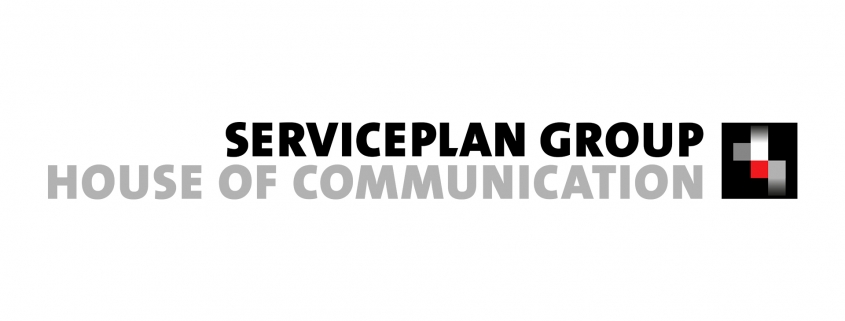- Performance Marketing in the New Normality - 20. May 2020
- Search engine marketing of the future - 10. May 2019
- Context beats keywords - 25. October 2017
Why the approach for search-engine advertising in future will focus more on context
The days of search-engine advertising (SEA) insisting chiefly on category accounts and generic campaigns with thousands of ad groups and keywords are coming to an end. Nowadays, excessive keywording is actually proving to be somewhat counter-productive. You could be extolling the virtues of a small Kölsch beer to a fan of Munich’s famous stein – a complete waste of time. The main reason for turning our backs on absolute keyword dominance is that, in the past, Google has continually expanded its keyword options. As a result, the context in which the keyword appears is becoming increasingly more relevant.
Originally, when planning SEA campaigns, care was taken to choose keywords that were as precise as possible, not least because of the strict policy implemented by Google. Nevertheless, over time, Google has become increasingly flexible with the range of its “exact match” and “phrase match” keyword options. For some time now, to ensure that potential customers do not fall between the cracks, misspelt keywords, regional language variations (e.g. tram instead of trolley) or abbreviations have also resulted in a hit list being returned. The aim of this measure was not only to generate more clicks and thus also more money for Google, it was also intended to simplify the process for advertisers to focus on the intentions of the people conducting the searches and thus ensure more relevant results.
Ultimately, all users are different and therefore have a different way of expressing themselves and a different idea of which adverts are personally relevant to them. There has also been a change in user behaviour with the increasing use of voice technology. According to Google, more than a fifth of enquiries are already made on Android smartphones using voice input. Consequently, for the SEA business, dynamic search ads (DSAs) are becoming more and more appealing.
The key benefit of dynamic search ads: greater reach, less manual effort
With dynamic search ads, keywords are no longer entered – apart from the keywords which should not be used at all (the so-called negatives). Instead, the text displayed is created (semi) automatically. In connection with dynamic search ads, keywords are only used in the context of a negative exclusion test, i.e. to ensure campaign granularity. With DSAs, rather than using keywords, Google compares search queries with the contents of a website or data feed. If there is relevant information with regard to the search enquiry, Google returns an advertisement, after approval of the campaign – automatically and with no keywords entered. In so doing, both the combination of words in the ad title and the URL of the target page are generated individually based on the way the search query is worded.
An example: a user is about to travel to Switzerland and wants to buy a new pair of hiking shoes. In the Google search window, he enters the words “men’s hiking shoes”, whereupon, based on the contents of the web shop, an ad is generated with the title “men’s hiking shoes”. Google takes the text for the ad from the product data feed or the text on the website. Because data feeds are often based on identical manufacturer’s information for all web shops, without content optimisation, no distinction in the headline of the text ad can be made. Companies therefore need to specify which type of criterion (price, selection, delivery, promotion etc.) should be selected. User and enquiry-related optimisation of contents in the web shop and data feed is the key to higher conversion rates here among search-ad competitors.
Dynamic search ads are already obtaining very good results. The reason for this is that the increase in targeting options on data feeds and new opportunities in text design means that ads can be placed with great precision, without any reduction in output by Google and if necessary without getting highly relevant traffic or paying more for this traffic. The more precise and relevant the ad, the more likely it is that the potential purchaser will click on it. It also ensures that considerably more users are reached than with campaigns purely based on keywords.
However, this partial automation in Google’s system certainly does not grant Google a free licence or allow the search-engine giants alone to decide what hits should be delivered. In fact, the opposite is true: agencies need to manage the complex craft of dynamic search ads. This means that they need to specify negative exclusion tests which ensure no advertisement is returned. In the earlier hiking-shoes example, this could be a combination of the terms “fall”, “mountaineering accident”, or something similar. They need to put together campaigns with clearly structured themes and optimise data feeds or the website structure and URLs.
It is also necessary to continuously monitor the quality of campaigns, constantly adjust what is returned and continuously review the rules and regulations that govern this. The tasks for agencies are therefore changing.
The e-commerce sector in particular stands to benefit from dynamic search ads. Online shops often have a large and ever-changing product range and extensive content, such as product data feeds, which can be accessed by generating dynamic ads. Despite the freedom offered by DSAs, campaigns can be closely controlled, as there is an option to advertise on the basis of the website as a whole, as well as specific categories. There is also a logistical advantage with dynamic search ads: because an online shop’s range often changes, this used to require a great deal of work with classic search-engine advertising. This work has been reduced to a minimum by the semi-automatic creation of DSAs.
Therefore, the work of search-engine advertisers will also change in future: we shall no longer be putting most of our effort into keyword sets and variant texts. Instead, for our SEA campaigns, we shall use dynamic search ads that extract their information automatically from data feeds and websites. In future, agencies will have to deal much more with pure campaign optimisation to ensure quality and thus long-term success. Furthermore, website optimisation and data-feed optimisation will increasingly become a central focus.
This page is available in DE




